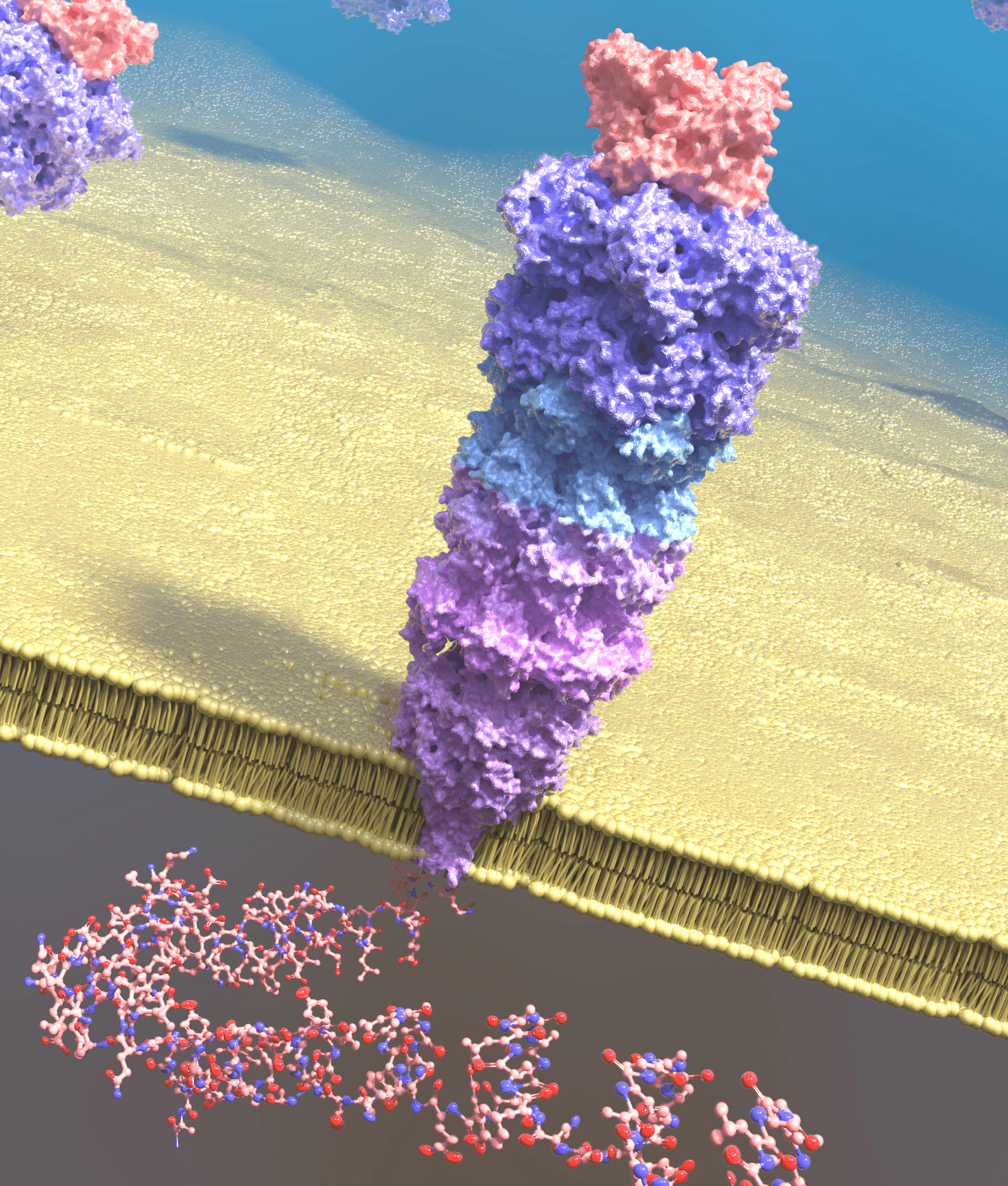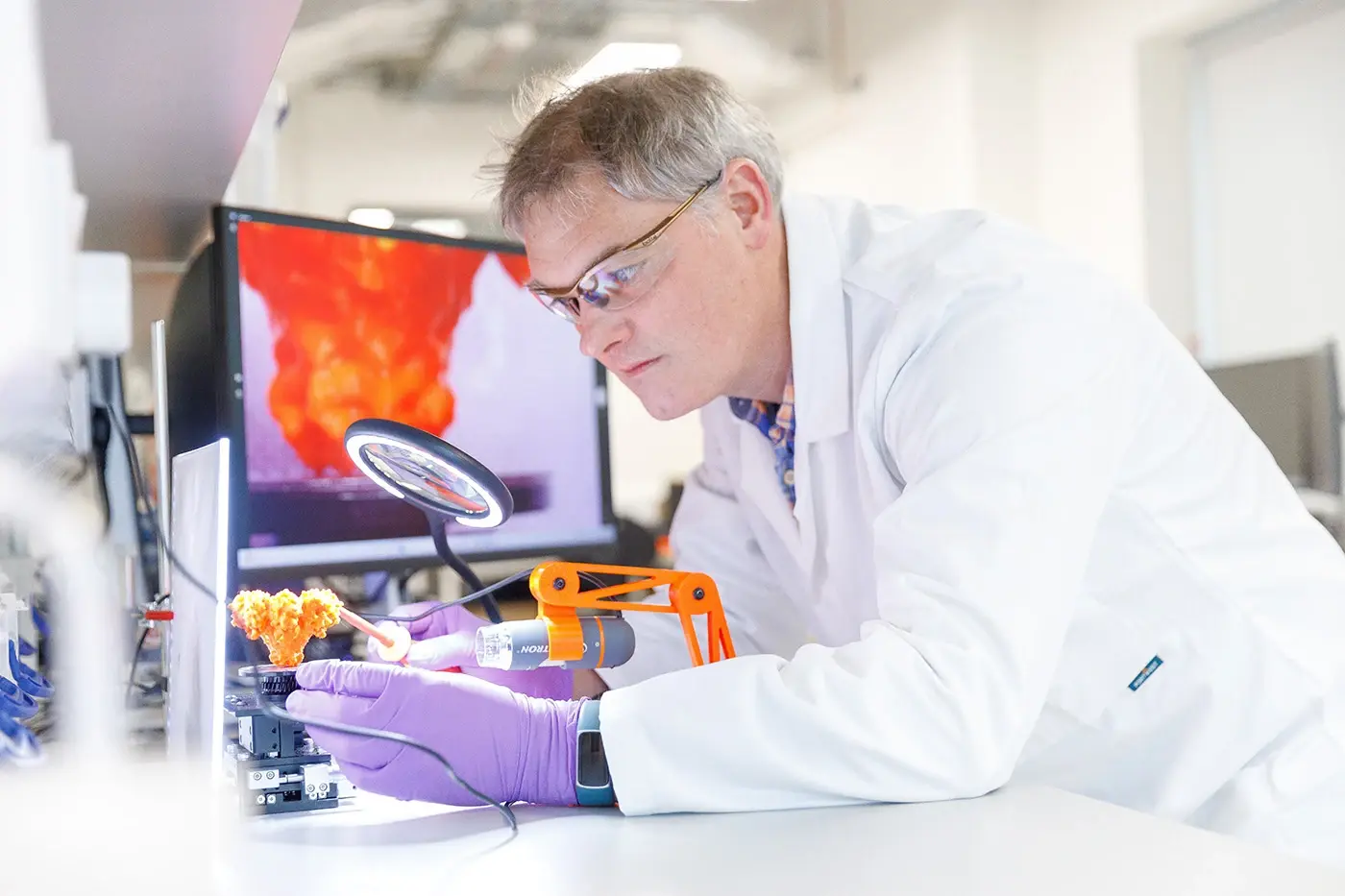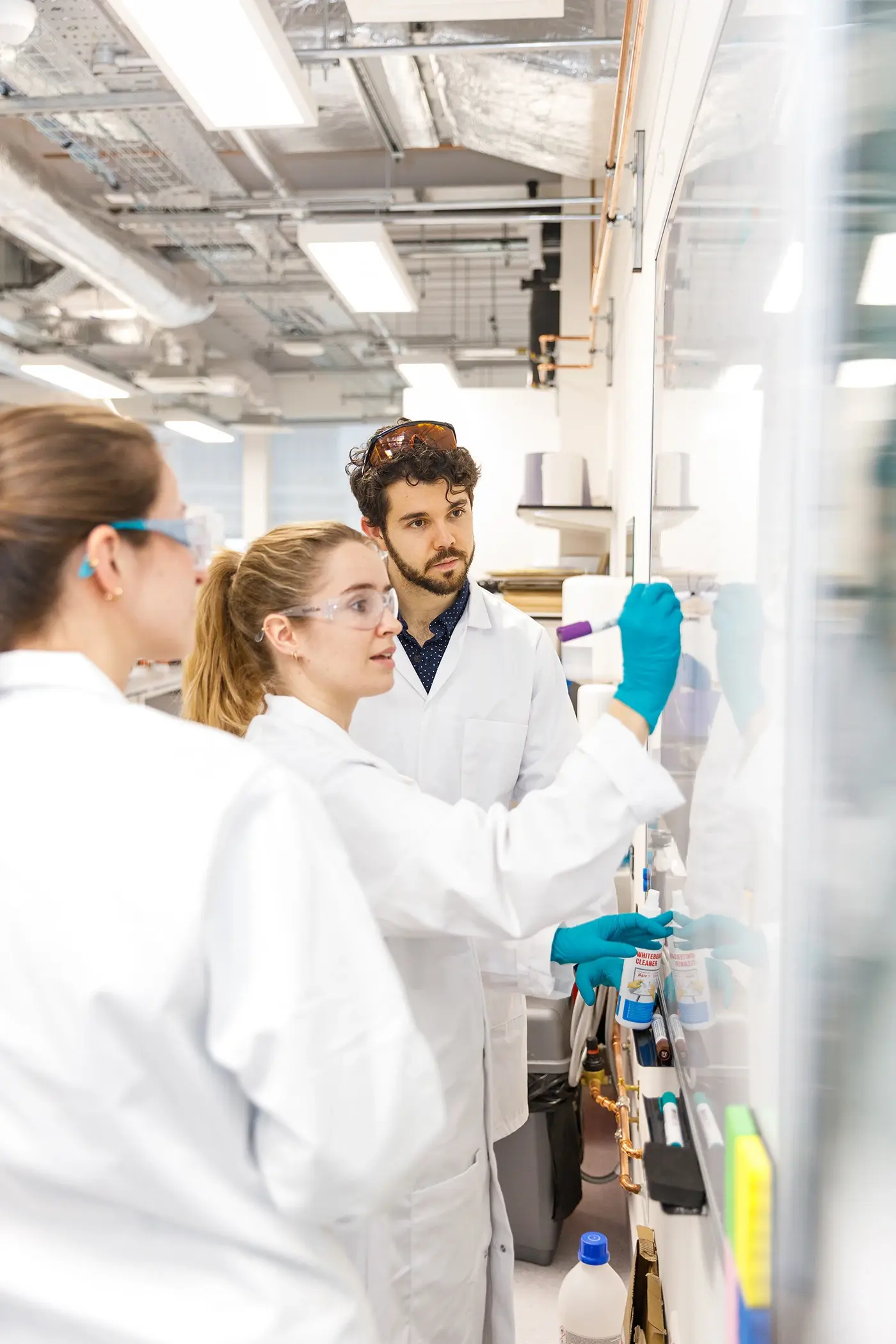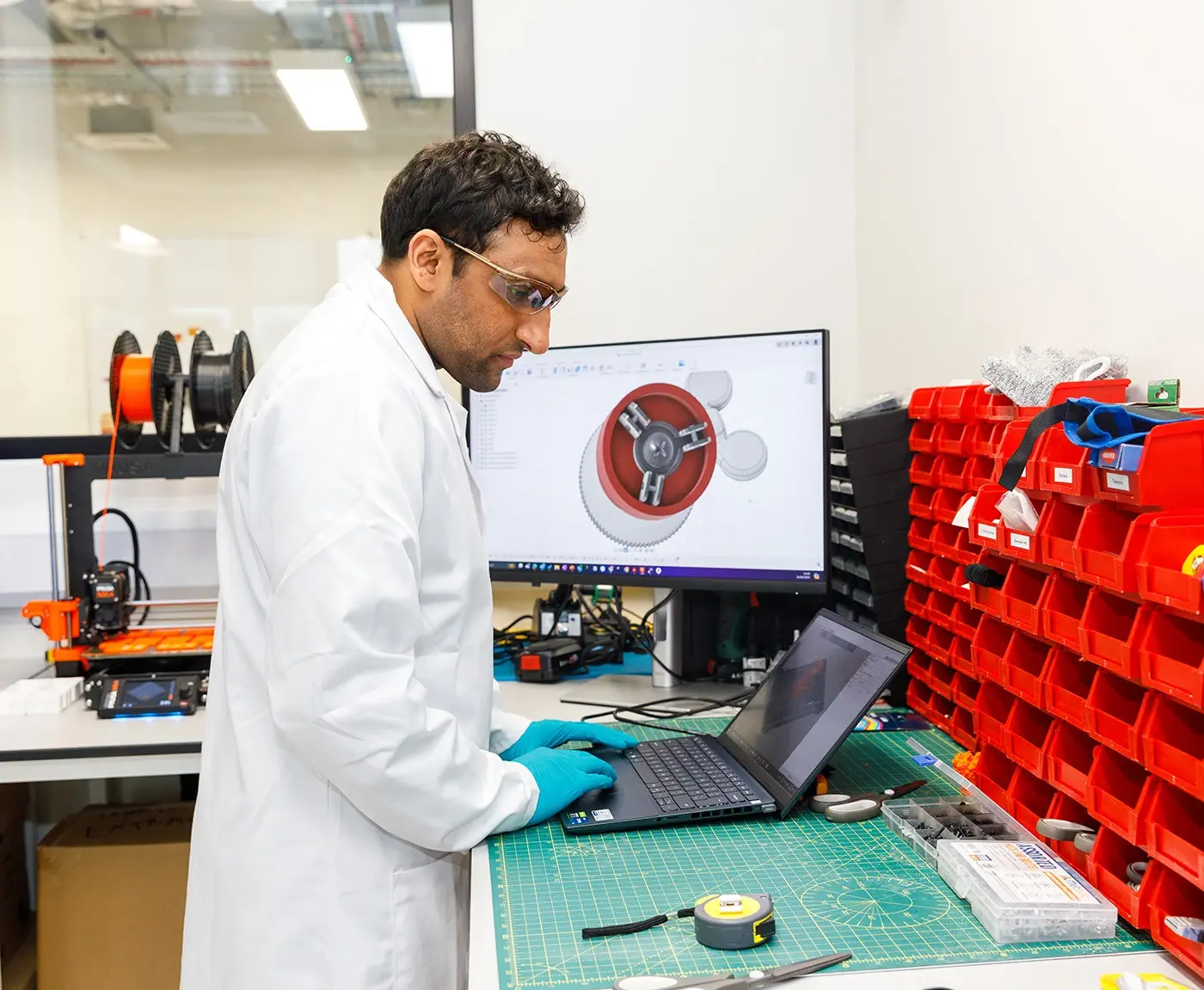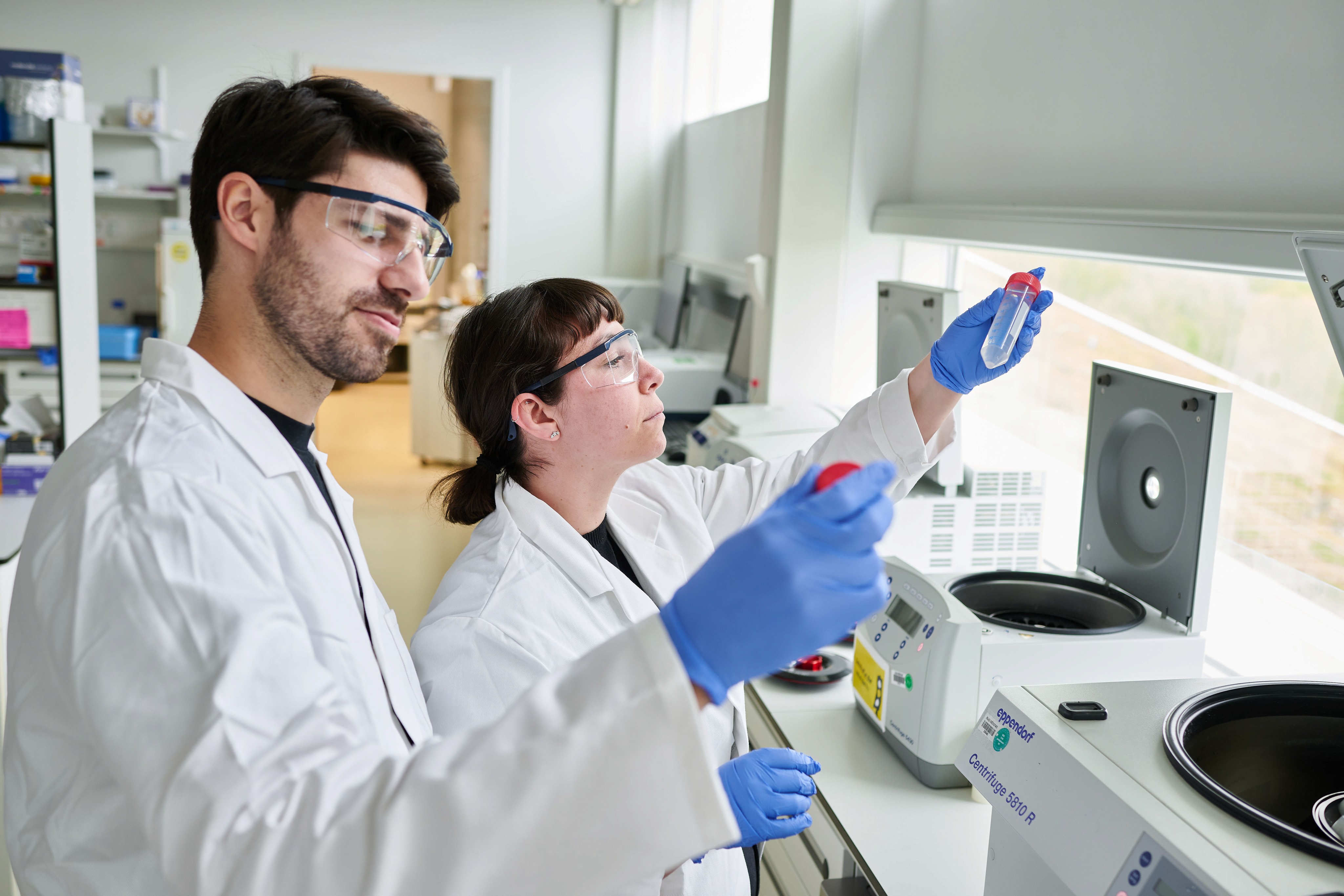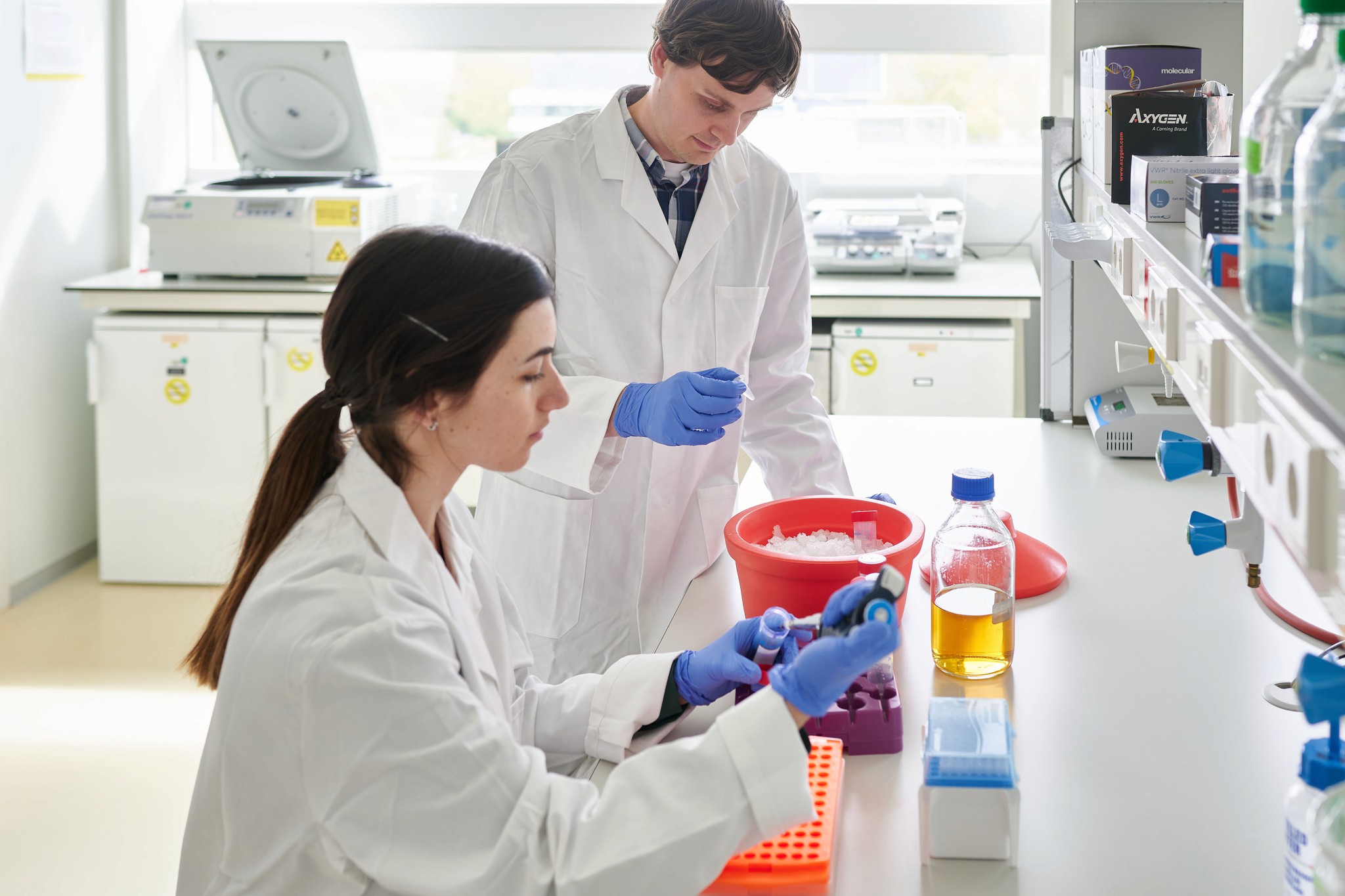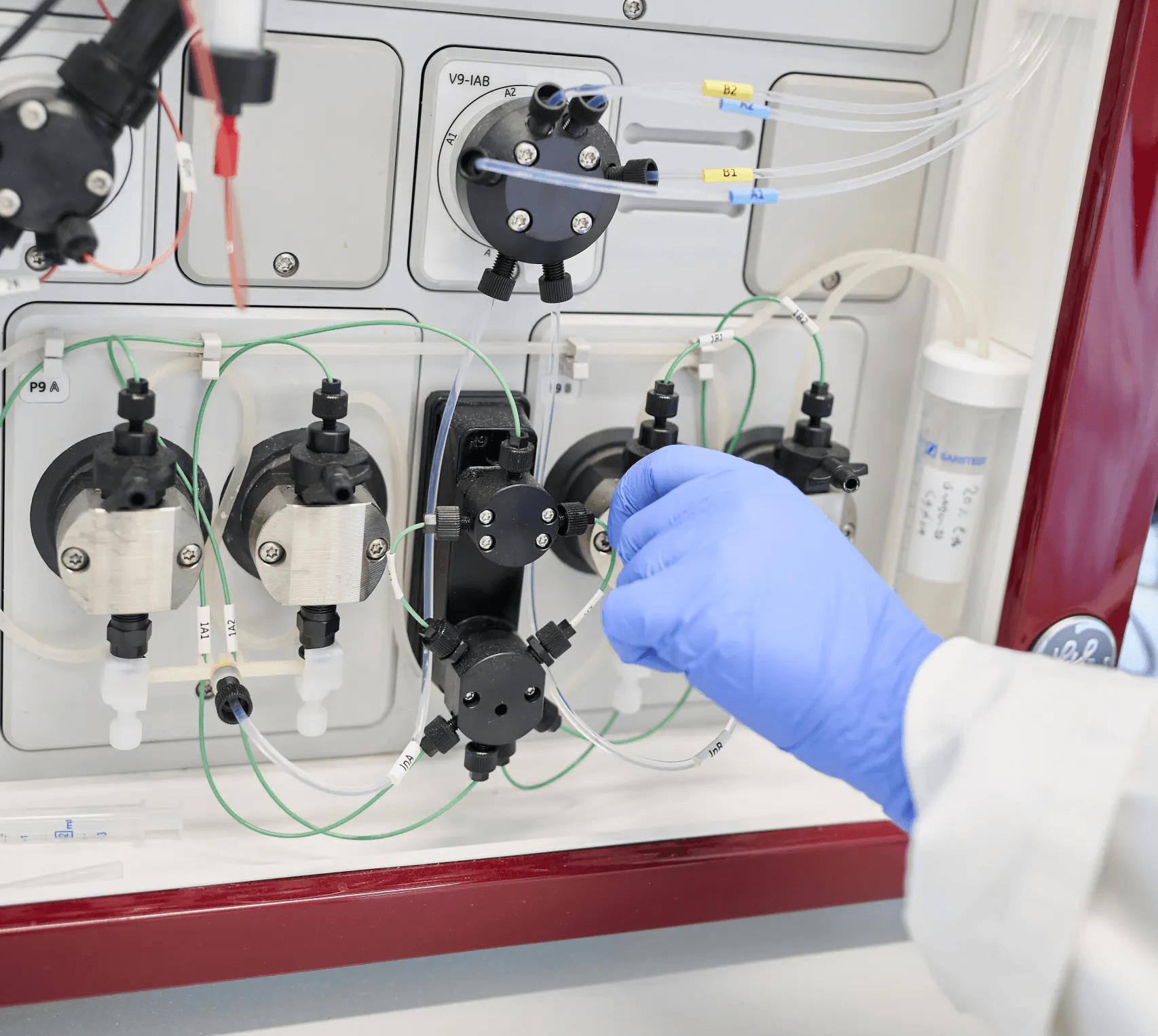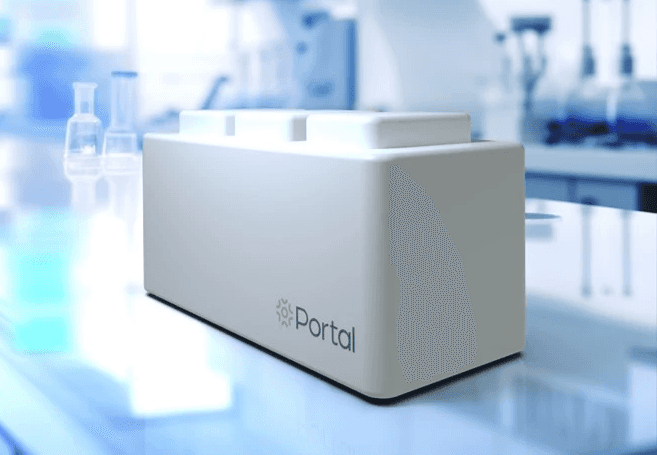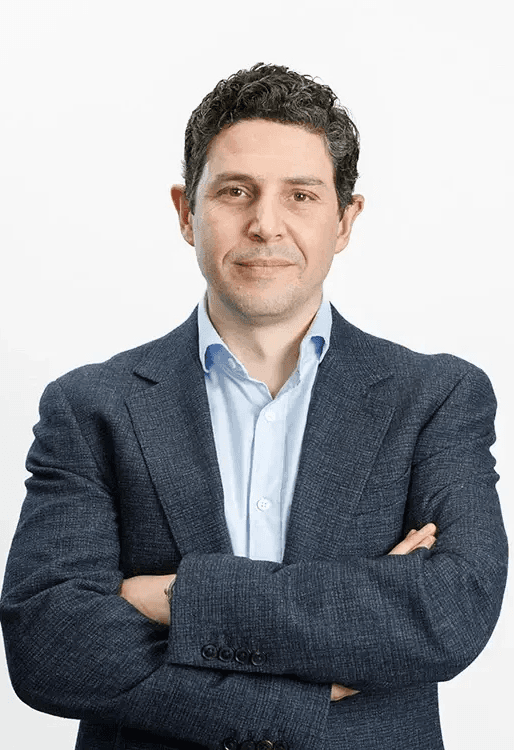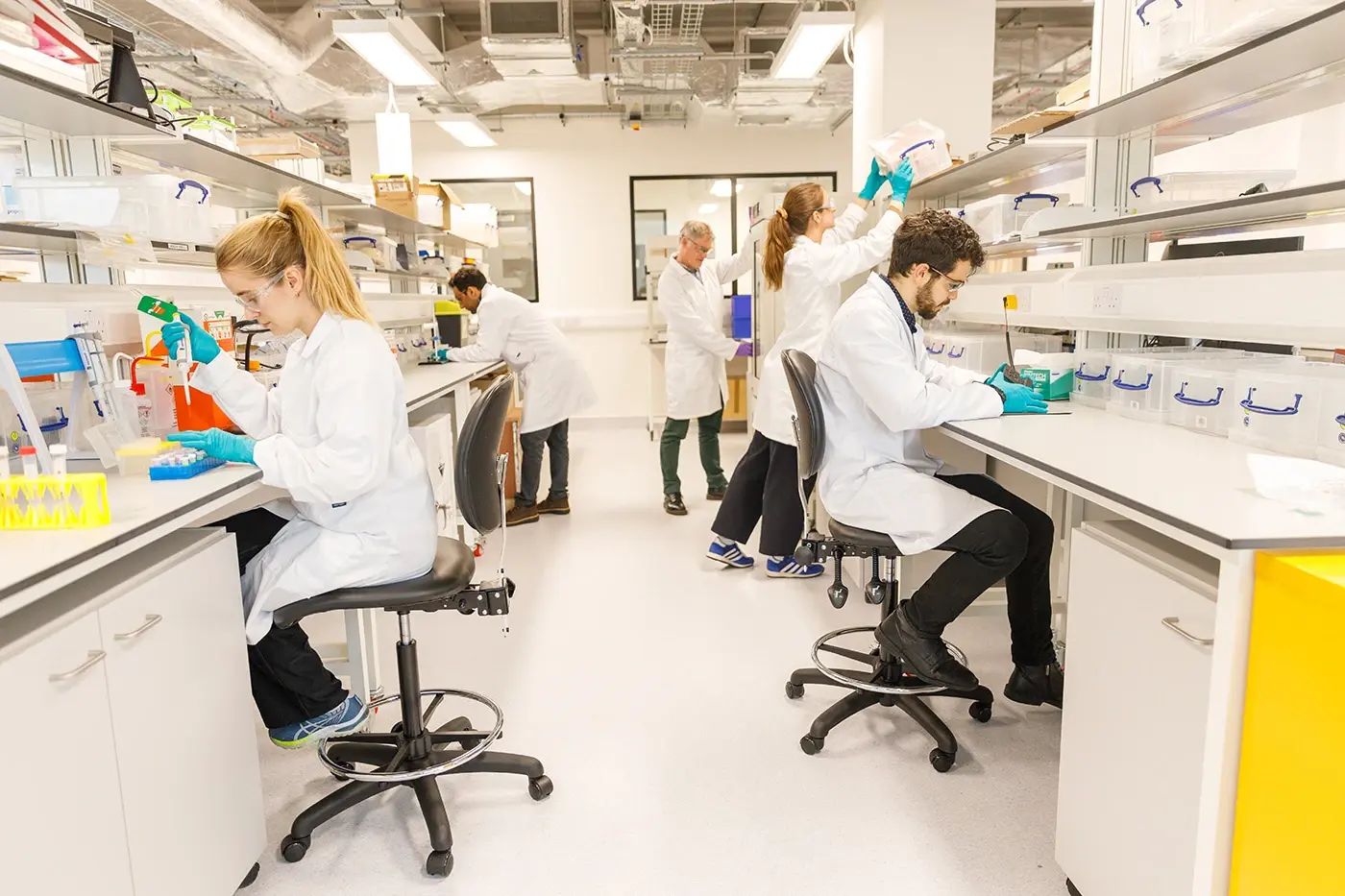Portal’s mission is to provide scientists and clinicians with fundamental tools to understand proteins and metabolites, enabling ground-breaking discoveries in health and biology, and expediting bringing new drugs and treatments to market.
Proteins are the functional units of biology
Single-molecule DNA and RNA sequencing has revolutionised science and healthcare, but the genome provides only the blueprint for an individual.
Proteins perform the actions in cells, and are the real-world readout of how our cellular biology changes due to disease and changes in our health.
The protein landscape of cells is dynamic, the protein abundance responds to changes in the environment and health. Individual proteins are altered through post-translational modification.
Deeper characterisation of the proteome — all protein variants in our cells — is critical for unlocking the inner workings of our functional biology, and will enable us to develop a new generation of better diagnostics and design better drugs.
Full-length protein sequencing: the complete proteome in high definition
Portal has developed a new generation of powerful and scalable desktop instruments built on nanopore technology that will unlock a deeper understanding of the human proteome.
Nanopores are nature’s biosensors — devices with atomic-level sensitivity, honed over billions of years of evolution. With expertise in cutting-edge biochemistry, engineering and machine learning, Portal's products build upon these remarkable properties to enable single-molecule sensing. Our cutting-edge protein characterisation methods build on foundational work by the Maglia lab at the University of Groningen:
Protein identification by nanopore peptide profiling — Nature Communications
Bottom-up fabrication of a proteasome–nanopore that unravels and processes single proteins — Nature Chemistry
Translocation of linearized full-length proteins through an engineered nanopore under opposing electrophoretic force — Nature Biotechnology
Using our nanopore arrays, our breakthrough chemistry enables proteins to be read end-to-end as intact single molecules, which allows for full-length coverage of the protein sequence, and all its modifications.
Our single-molecule nanopore biosensing platforms are one of the most exciting next-generation platform technologies:
Single-molecule protein sequencing was one of Nature’s Seven technologies to watch in 2023 and was highlighted in Nature Methods.
The Human Proteoform Project aims to characterise and assign function to the millions of proteoforms predicted from the ~20,000 or so known human genes.
Using our novel nanopore sensing chemistry, our flexible, bench-top instrument enables the real-time analysis of complex mixtures of biomolecules, providing rapid insights into protein abundance, identity, heterogeneity and variation.
Advantages of Portal instruments
Applications
Protein variants
Isoforms
Truncations
Mutations
Translation errors
Post-translational
modifications
Phosphorylation
Glycosylation
Acetylation
Deamidation
Conjugation
and many others…
Proteoforms
Classification
De novo discovery
Biologics QC
Sample degradation
Contamination
Quantitation
Chirality
Protein identification and quantification
Quickly identify any protein of interest from a whole proteome, using our bench-top, cartridge-based instruments.
Straightforward quantification of proteins from a complex mixtures by molecular counting.
Full-length polypeptide analysis ensures no peptide dropout, and molecule-by-molecule analysis reveals mutations, isoforms, truncations, and fusions.
With no theoretical upper limit on the length of proteins, our platform can characterise any protein from short peptides to large proteins >100 kDa.
Post-Translational Modifications (PTMs)
PTMs are chemical changes to a protein that are not encoded at the DNA or RNA level. These changes regulate protein activity, localisation and interactions with other biomolecules, and are frequently implicated in human diseases such as cancer and neurodegeneration. The pattern of PTMs along the full length of a polypeptide molecule is its proteoform.
Portal's instruments are the first to provide comprehensive protein variant profiling of full-length proteins on a single-molecule basis, revealing new proteoforms and overcoming many of the coverage, quantitation and sensitivity limitations of traditional proteomics methods.
Existing proteomics methods fragment proteins, resulting in loss of the pattern of PTMs along individual proteins, and reconstructing the proteoform requires painstaking comparison with other samples. By analysing the full length of intact proteins, Portal's technology recovers the full proteoform of individual molecules and quantifies the species present in a sample.
Early Access
Portal's instruments are available today through the protein characterisation services provided by our laboratories and we welcome opportunities for collaboration. Interested commercial or academic parties can also sign up for our Early Access Programme.
Services
Specialised R&D Discovery and Development Solutions, tailored to solve difficult proteomics problems for biotechnology and pharmaceutical customers in various sectors
Sample-to-lab service for sample characterisation
Desktop Instruments
If you are interested in engaging our service, collaborating, or participating in our Early Access Programme, please contact us using the form below or send an email to applications@portalbiotech.com
Team
Portal's category-defining technology would not be possible without the incredible talent of our scientists, engineers and technicians. Supporting them is Portal's executive team, who have over 50 years' combined experience in biosensors and nanopore science.
Careers
Join our dynamic team at the forefront of proteomics and biotechnology. At Portal Biotech, we are dedicated to revolutionizing the way we understand and manipulate proteins to drive advancements in human health, technology and biology. If you are passionate about cutting-edge science and making a difference, please get in touch using one of the email addresses below.
Contact us
For general enquiries, please email info@portalbiotech.com
For collaborations or information about our early access programme, please email applications@portalbiotech,com
For careers enquiries, please email
Applications are processed in accordance with our GDPR privacy statement
